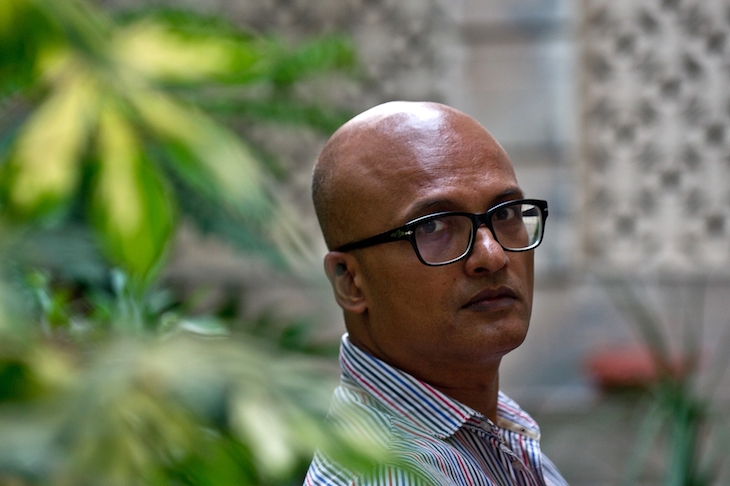The Indian poet Jeet Thayil’s first novel, Narcopolis, charted a two-decade-long descent into the underworlds of Mumbai and addiction. One part de Quincey, one part Burroughs, it was distinguished not just by the sustained beauty and brilliance of its prose but by what must surely rank as a strong contender for the funniest scene in a Theosophy Hall ever written. It was also highly autobiographical and, perhaps just as importantly, deliberately subversive, rejecting the questions of national identity and family that preoccupy most Indian novels that find favour in the West.
Something similar might be said about Thayil’s new novel, The Book of Chocolate Saints. At once a metafictional history of Mumbai’s literary scene, a furious satire of Western attitudes to Indian writing and an exploration of the complexity of the diasporic experience, it is also a rich and densely realised work of the imagination that simultaneously draws closely on Thayil’s own experience.
At the novel’s centre is the poet and painter Francis Newton Xavier. Born in Goa, and displaced first to Mumbai and then to New York, he is modelled in part on Dom Moraes (to whom the book is dedicated). Xavier is famous for his appetite for alcohol and women, tastes that have, as the years have passed, begun to catch up with him. Around Xavier move numerous other characters, perhaps most significantly his lover and carer, the photographer Goody Lol, his manager, Amrik Singh, an American-born Sikh and former bonds trader, and the rather more enigmatic figure of Dismas Bambai, a writer and poet, all based, to a greater or lesser degree, on real-life figures.
Presumably this appropriation of real people lends the novel a layer of meaning that is largely lost on non-Indian readers, a fact Thayil anticipates and bends back on itself.








Comments
Join the debate for just £1 a month
Be part of the conversation with other Spectator readers by getting your first three months for £3.
UNLOCK ACCESS Just £1 a monthAlready a subscriber? Log in